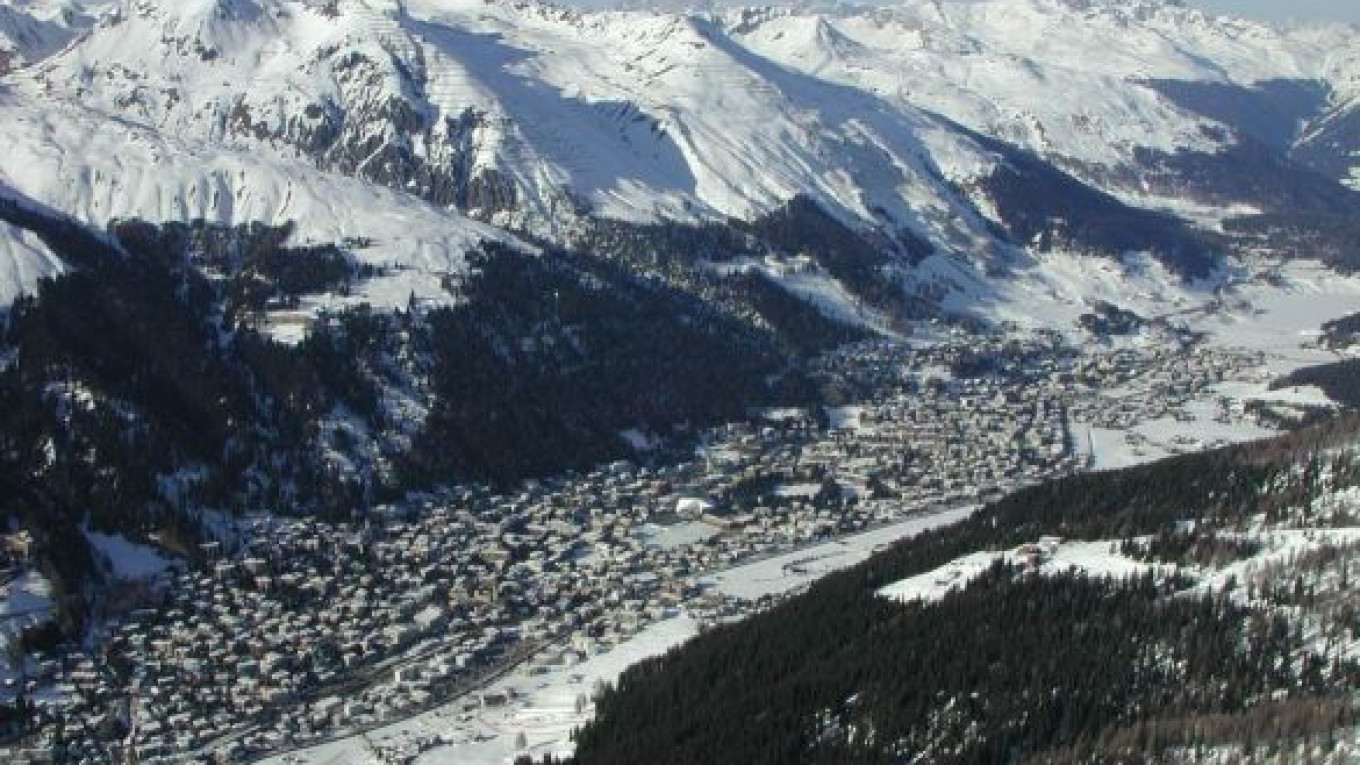A report on Russian regions at the World Economic Forum in Davos on Wednesday will call on the country's policy makers to attempt four key improvements for business.
The measures are painfully familiar, but the report seeks to trigger implementation rather than surprise with startling solutions, said Alexander Ivlev, one of the report's authors.
Titled "Russia's Regions: Drivers of Growth," the report urges the government to reduce corruption and red tape, improve access to finance and provide a better-educated workforce. It also shows how these changes turned around the business climate in three Russian regions.
'We hope that this report contributes to a constructive discussion.'
Klaus Schwab
WEF Founder
"The theme is not new in many aspects," said Ivlev, a managing partner for consultancy firm EY in Russia. "But there is no need to reinvent the bicycle."
The report comes as talk about finding ways to reset the economy intensified in recent months on the heels of foundering economic growth. Russia's gross domestic product increased a meager 1.3 percent last year, an Economic Development Ministry official said earlier this month.
The report caps a year of research by a team of Russian and international economists and consultants under the auspices of the World Economic Forum — work that included field trips to the regions and discussions with administrations. Ulyanovsk, Kaluga and Tatarstan regions are the show cases in the paper.
Klaus Schwab, founder and executive chairman of the World Economic Forum, said in the foreword, that "We hope that this report contributes to a constructive discussion on practical steps that Russia can take to build a more resilient economy through reforms coming from its diverse regional actors," according to a copy obtained by The Moscow Times.
It was unclear Tuesday who would present the report at the Russia Outlook session. Former Finance Minister Alexei Kudrin, who was tipped for the role, is skipping the event due to a health issue.
Under Governor Sergei Morozov, the Ulyanovsk region has made strides in battling corruption, according to the report. A survey of best practices found that the key reason for the achievement may have been the governor's "personal involvement and dedication."
Kaluga stands out as a region that cut down on red tape and offers tax incentives and loan guarantees, the report stated. It also takes care of training workers.
Tatarstan leads the way among Russia's regions in three of the four focus areas, lacking only in skilled employees.
"Russia's regions boast a reservoir of good practices and experience with institutional reforms which can and should become a guide to improving the conditions for doing business in the country," the paper said in conclusion. "Some of the regions portrayed in this report are already paving the way for what a more modern and diversified Russian economy could look like."
The World Bank's Doing Business in Russia report, published in 2012, compared regulations that enhance or constrain business activity in 30 Russian cities and found that Moscow was far from the top performers, while some regions significantly exceeded the national average.
Contact the author at [email protected]
A Message from The Moscow Times:
Dear readers,
We are facing unprecedented challenges. Russia's Prosecutor General's Office has designated The Moscow Times as an "undesirable" organization, criminalizing our work and putting our staff at risk of prosecution. This follows our earlier unjust labeling as a "foreign agent."
These actions are direct attempts to silence independent journalism in Russia. The authorities claim our work "discredits the decisions of the Russian leadership." We see things differently: we strive to provide accurate, unbiased reporting on Russia.
We, the journalists of The Moscow Times, refuse to be silenced. But to continue our work, we need your help.
Your support, no matter how small, makes a world of difference. If you can, please support us monthly starting from just $2. It's quick to set up, and every contribution makes a significant impact.
By supporting The Moscow Times, you're defending open, independent journalism in the face of repression. Thank you for standing with us.
Remind me later.


